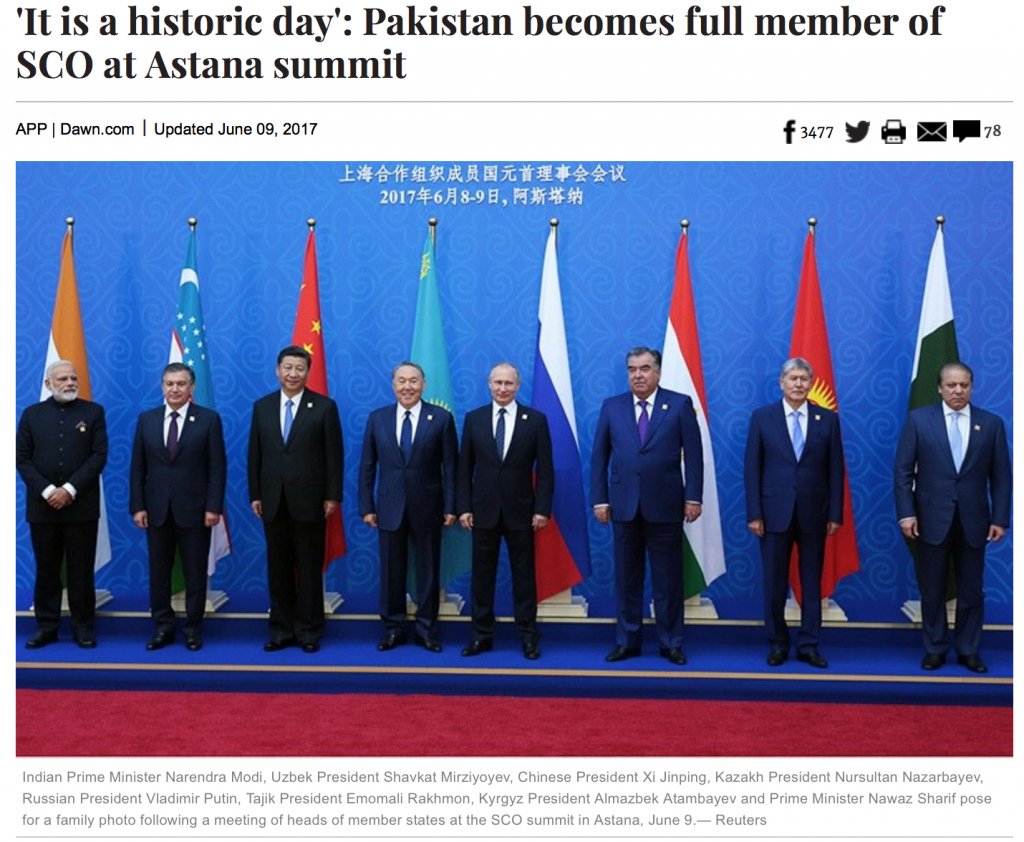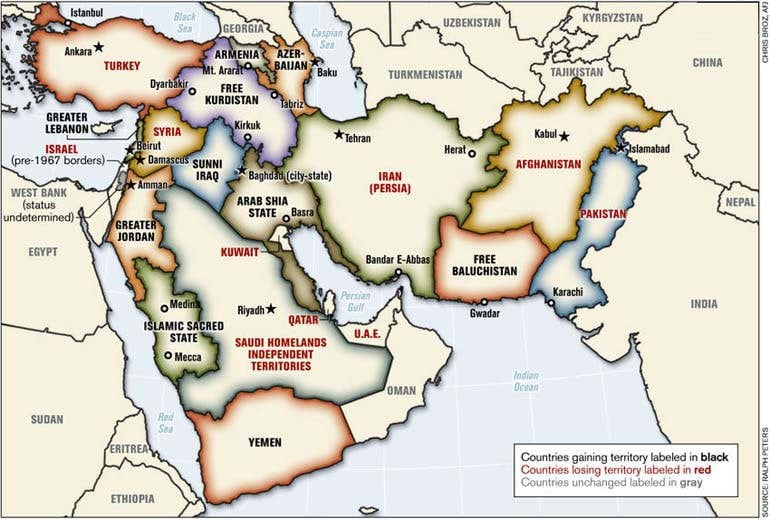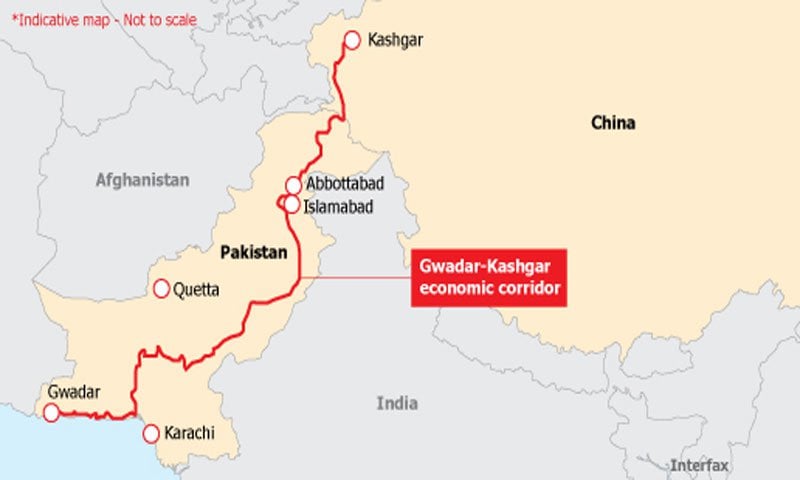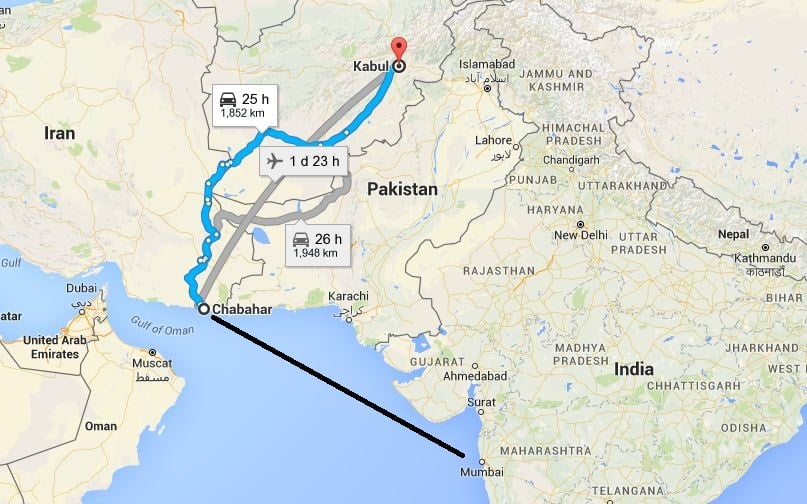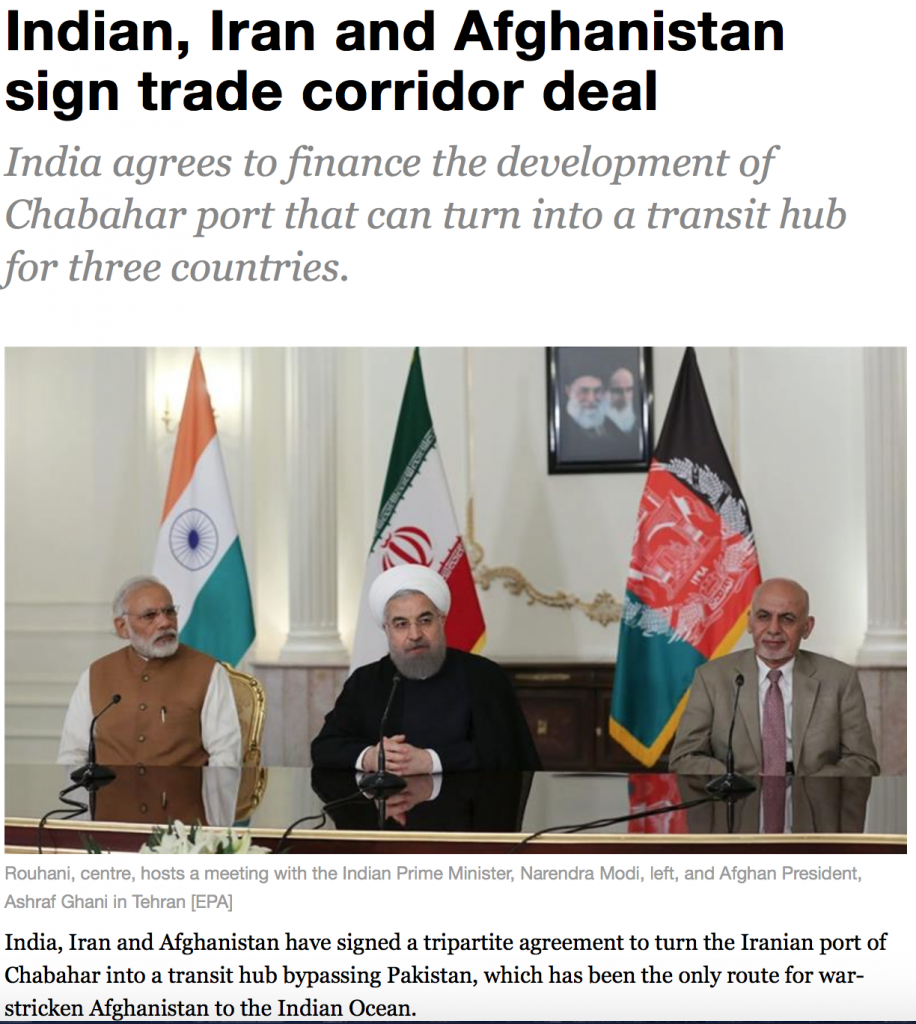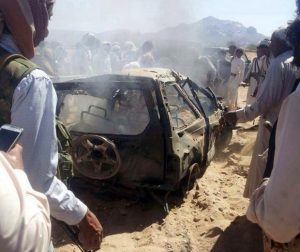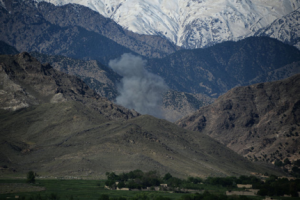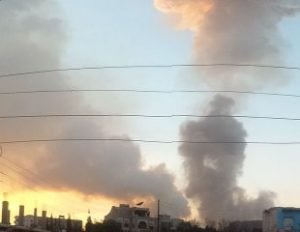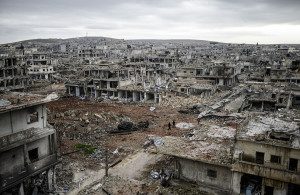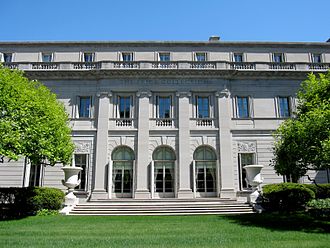It often appears that “true Afghanistan” is not here in Kabul and not in Jalalabad or Heart either; not in the ancient villages, which anxiously cling to the steep mountainsides.
Many foreigners and even Afghans are now convinced that the “true” Afghanistan is only what is being shown on the television screens, depicted in magazines, or what is buried deep in the archives and libraries somewhere in London, New York or Paris.
It is tempting to think that the country could be only understood from a comfortable distance, from thesafety of one’s living room or from thosebooks and publications decorating dusty bookshelves and coffee tables all over the world.
“Afghanistan is dangerous,” they say. “It is too risky to travel there. One needs to be protected, escorted, equipped and insured in order to function in that wild and lawless country even for one single day, or just a few hours.”
When it comes to Afghanistan, conditioned Western ‘rational brains’ of tenure or emeritus professors (or call them the ‘regime’s intellectual gatekeepers’) often get engaged, even intertwined with those pathologically imaginative minds of the upper class ‘refugees’, the ‘elites’, and of course their offspring. After all, crème de la crème ‘refugees’ speak perfect English; they know the rules and nuances of the game. The results of such ‘productive interaction’ are then imprinted into countless books and reports.
Books of that kind become, in turn, what could be easily defined as the ‘official references’, a ‘certified way’ to how our world perceives a country like Afghanistan. Their content is being quoted and recycled.
How often I heard, from the old veteran opinion makers (even those from the ‘left’) – people that I actually used to respect in the past:
“The Soviet era in Afghanistan was of course terrible, but at least many girls there had access to the education…”
It is no secret that ‘many girls had access to education’ in those distant days, but was it really “terrible”, that era? Was it “of course, terrible?” Baseless clichés like this are actually shaping ‘public opinion’, and can be much more destructive than the hardcore propaganda.
Most of those old gurus never set foot in Afghanistan, during the Soviet era or before, let alone after. All their ‘experience’ is second or third-hand, constructed mainly on sponging up bitterness from those who betrayed their own country and have been collaborating with the West, or at least on the confusion and mental breakdowns of their children.
Based on such recycled unconfirmed ‘facts’, bizarre theories are born. According to them, Afghanistan is ‘officially’ wrecked; it is hopelessly corrupt; it is beyond salvation and repair. It is ‘so divided, ethnically and otherwise’, that it can never function again as one entity.
Then come liberals, and the children of corrupt Afghan diplomats and exiled ‘elites’, who commonly justify their passivity by blaming the entire world for the destruction of their nation: “every country in the world just wants to harm Afghanistan, take shamelessly advantage of it.”
Naturally, if everybody is responsible, than nobody truly is. Therefore, as expected, ‘the grand conclusion’ is – “There is absolutely no hope.” Everyone who can is trying to leave; who in his or her right mind would want to dwell in such mayhem?”
Let’s just write the entire place off! Chapter closed. One of the greatest cultures on Earth is finished. Nothing can be done about it. Goodbye, Afghanistan! Ciao, bella!
For some, especially for those who left the country and slammed the door, it is a tempting and ‘reassuring’ way of looking at the state of things. It justifies their earlier decision. If one accepts such views, than nothing has to be done, because no matter what, things would never improve, anyway. For many, especially for those who are benefiting (even making careers) from doing absolutely nothing to save Afghanistan, such an approach and such theories are actually perfect. Very little of it matters to them, that almost all of this is total rubbish!
*
I never saw any of those professors from the MIT or Cornell University anywhere near the dusty roads cutting through Samar Khel or Charikar. I never saw any reporters from the Western mass media outlets here, in the deepest villages that keep changing hands between Taliban and the government forces, either. If they were here, I’d definitely spot them, as they tend to travel ‘in style’, like some buffoons from bygone eras: wearing ridiculous helmets, bulletproof vests, and PRESS insignias on all imaginable and unimaginable parts of their bodies, while being driven around in armored vehicles, often even with a full military escort.
It would be quite difficult to talk to Afghan people looking like that. There is not much one could actually even see from such an angle and perspective, but that’s the only one they are choosing to have, that is if they come here at all.
*
Let me back-track a bit: in case my readers in the West or elsewhere have never heard about Samar Khel. Well, it is a dusty town not far from Jalalabad, a former ‘grave’ for the Soviet forces and the National Afghan Army. During the “Soviet era”, the US and the Saudi-backed Mujahideen used to fire between 500 and 1,000 missiles from here, all directly towards the city of Jalalabad, day after day.
It is very hard to imagine what went on and what went wrong in Afghanistan during the 1980’s, without feeling that 430C heat of the desert, without chewing dust, without facing those bare, hostile mountains, and without speaking to people who used to live here during ‘those days’, as well as people who have been existing, barely surviving here now.
It is also absolutely impossible to understand the Soviet Union and its ‘involvement’ in Afghanistan, without driving through the countryside and all of a sudden spotting in some ancient and god-forsaken village, a mighty and durable water duct built by Soviet engineers several decades ago, with electricity towers and high voltage wires still proudly spanning above.
*
By now I know that I don’t want to write another academic book. I wrote two of them, one about Indonesia and one about that enormous sprawl of water dotted with fantastic but devastated islands and atolls of the South Pacific – “Oceania”. To write academic books is time consuming and it is, in many ways, ‘selfish’. The true story gets buried under an avalanche of tedious facts and numbers, under footnotes and recycled quotes. Once such a book is read and returned to its place on a shelf, no one is really inspired or outraged, no one is terrified and no one is ready to build barricades and fight.
But most academic books and are never even read from cover to cover.
I see no point in writing books that wouldn’t inspire people to raise flags, to fight for their country and humanity.
I don’t work in Afghanistan in order to compile indexes and footnotes. I am there because the country itself is a victim of the most brutal and ongoing imperialist destruction in modern history. As an internationalist, I’m not here only to document; I’m here to accuse and to confront the venomous Western colonialist narrative frontally.
Afghanistan is bleeding, assaulted and terribly injured. Therefore it deserves to be fought for and not just to be analyzed and described. No cold and detached historic accounts, no texts written from a safe distance, can help this beautiful country to stand on its own feet, to regain its pride and hope, and to fly as it used to in the not so distant past.
It doesn’t need more and more nihilism. On the contrary, it is thirsting for optimism, for new friends, for hope.
Not all countries are the same. Even now, Afghanistan has friends, true friends, no matter how much this fact is being obscured by the Western propagandists, no matter how much pro-Western Afghan elites are trying to prove otherwise.
*
This is not what you are supposed to be reading. All remembrances of the “Soviet Era” in Afghanistan have been boxed and then labeled as “negative”, even “toxic”. No discussion on the topic is allowed in ‘polite circles’, at least in the West and in Afghanistan itself.
Afghanistan is where the Soviet Union was tricked into, and Afghanistan is where the Communist superpower received its final blow. ‘The victory of capitalism over communism’, the official Western narrative shouted. A ‘temporary destruction of all progressive alternatives for our humanity’, replied others, but mostly under their breath.
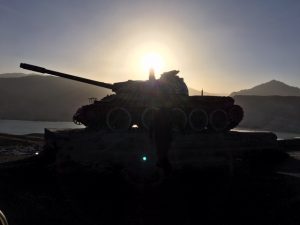
Wreckage of Soviet tanks
After the horrific, brutal and humiliating period of Gorbachev/Yeltsin, Russia shrunk both geographically and demographically, while going through indescribable agony. It hemorrhaged; it was bathing in its own excrement, while the West celebrated its temporary victory, dancing in front of the world map, envisioning the re-conquest of its former colonies.
But in the end Russia survived, regained its bearings and dignity, and once again became one of the most important countries on Earth, directly antagonistic to the global Western imperialist designs.
Afghanistan has never recovered. After the last Soviet combat troops left the country in 1989, it bled terribly for years, consumed by a brutal civil war. Its progressive government had to face the monstrous terror of the Western and Saudi-backed Mujahideen, with individuals like Osama bin Laden in command of the jihadi genocide.
Socialists, Communists, secularists as well as almost all of those who were educated in the former Soviet Union or Eastern Block countries, were killed, exiled, or muzzled for decades.
Most of those who settled in the West simply betrayed; went along with the official Western narrative and dogma.
Even those individuals who still claimed to be part of the left, repeated like parrots, their pre-approved fib:
“Perhaps the Soviet Union was not as bad as the Mujahideen, Taliban, or even the West, but it was really bad enough.”
I heard these lines in London and elsewhere, coming from several mouths of the corrupt Afghan ‘elites’ and their children. From the beginning I was doubtful. And then my work, my journeys to and through Afghanistan began. I spoke to dozens of people all over the country, doing exactly what I was discouraged to do: driving everywhere without an escort or protection, stopping in the middle of god-forsaken villages, entering fatal city slums infested with narcotics, approaching prominent intellectuals in Kabul, Jalalabad and elsewhere.
“Where are you from?” I was asked on many occasions.
“Russia,” I’d reply. It was a gross simplification. I was born in Leningrad, now St Petersburg, but an incredible mixture of Chinese, Russian, Czech and Austrian blood circles through my veins. Still, the name “Russia” came naturally to me, in the middle of Afghan deserts and deep gorges, especially in those places where I knew that my life was hanging on a thin thread. If I were to be allowed to utter one last word in this life, “Russia” was what I wanted it to be.
But after my declaration, the faces of the Afghan people would soften, unexpectedly and suddenly. “Welcome!” I’d hear again and again. An invitation to enter humble homes would follow: an offer to rest, to eat, or to just drink a glass of water.
‘Why?’ I often wondered. “Why?” I finally asked my driver and interpreter, Mr. Arif, who became my dear friend.
“It’s because in this country, Afghans love Russian people,” he replied simply and without any hesitation.
“Afghans love Russians?” I wondered. “Do you?”
“Yes,” he replied, smiling. “I do. Most of our people here do.”
*
Two days later I was sitting inside an armored UNESCO Land Cruiser, talking to a former Soviet-trained engineer, now a simple driver, Mr. Wahed Tooryalai. He allowed me to use his name; he had no fear, just accumulated anger, which he obviously wanted to get out of his system:
“When I sleep, I still sometimes see the former Soviet Union in my dreams. After that, I wake up and feel happy for one entire month. I remember everything I saw there, until now…”
I wanted to know what really made him so happy ‘there’?
Mr. Wahed did not hesitate:
“People! They are so kind. They are welcoming… Russians, Ukrainians… I felt so much at home there. Their culture is exactly like ours. Those who say that Russians ‘occupied’ Afghanistan have simply sold out. The Russians did so much for Afghanistan: they built entire housing communities like ‘Makroyan’, they built factories, even bakeries. In places such as Kandahar, people are still eating Russian bread…”
I recalled the Soviet-era water pipes that I photographed all over most of the humble Afghan countryside, as well as the elaborate water canals in and around cities like Jalalabad.
“There is so much propaganda against the Soviet Union,” I said.
“Only the Mujahideen and the West hate Russians,” Mr. Wahed explained. “And those who are serving them.”
Then he continued:
“Almost all poor Afghan people would never say anything bad about Russians. But the government people are with the West, as well as those Afghan elites who are now living abroad: those who are buying real estate in London and Dubai, while selling their own country…those who are paid to ‘create public opinion.’”
His words flowed effortlessly; he knew precisely what he wanted to say, and they were bitter, but it was clearly what he felt:
“Before and during the Soviet era, there were Soviet doctors here, and also Soviet teachers. Now show me one doctor or teacher from the USA or UK based in the Afghan countryside! Russians were everywhere, and I still even remember some names: Lyudmila Nikolayevna… Show me one Western doctor or nurse based here now. Before, Russian doctors and nurses were working all over the country, and their salaries were so low… They spent half on their own living expenses, and the other half they distributed amongst our poor… Now look what the Americans and Europeans are doing: they all came here to make money!”
I recall my recent encounter with a Georgian combatant, serving under the US command at the Bagram base. Desperate, he recalled his experience to me:
“Before Bagram I served at the Leatherneck US Base, in Helmand Province. When the Americans were leaving, they even used to pull out concrete from the ground. They joked: “When we came here, there was nothing, and there will be nothing after we leave…” They prohibited us from giving food to local children. What we couldn’t consume, we had to destroy, but never give to local people. I still don’t understand, why? Those who come from the US or Western Europe are showing so much spite for the Afghan people!”
What a contrast!
Mr. Wahed recalled how the Soviet legacy was abruptly uprooted:
“After the Taliban era, we were all poor. There was hunger; we had nothing. Then the West came and began throwing money all around the place. Karzai and the elites kept grabbing all that they could, while repeating like parrots: “The US is good!” Diplomats serving Karzai’s government, the elites, they were building their houses in the US and UK, while people educated in the Soviet Union couldn’t get any decent jobs. We were all blacklisted. All education had to be dictated by the West. If you were educated in the USSR, Czechoslovakia, East Germany or Bulgaria, they’d just tell you straight to your face: Out with you, Communist! At least now we are allowed to at least get some jobs… We are still pure, clean, never corrupt!”
“Do people still remember?” I wonder.
“Of course they do! Go to the streets, or to a village market. Just tell them: “How are you my dear?” in Russian. They’d immediately invite you to their homes, feed you, embrace you…”
I tried a few days later, in the middle of the market… and it worked. I tried in a provincial town, and it worked again. I finally tried in a Taliban-infiltrated village some 60 kilometers from Kabul, and there it didn’t. But I still managed to get away.
*
I met Mr. Shakar Karimi in Pole Charkhi Village. A local patriarch, he used to be a district chief in Nangarhar Province.
I asked him, what the best system ever implemented in modern Afghanistan was?
First he spoke about the Khan dynasty, but then referred to a left-wing Afghan leader, who was brutally tortured and murdered by Taliban after they entered Kabul in 1996:
“If they’d let Dr. Najib govern in peace, that would have been the best for Afghanistan!”
I asked him about the Soviet invasion in 1979.
“They came because they were given wrong information. The first mistake was to enter Afghanistan. The second, fatal mistake was to leave.”
“What was the main difference between the Russians and Westerners during their engagement in Afghanistan?”
“The Russian people came predominately to serve, to help Afghanistan. The relationship between Russians and Afghans was always great. There was real friendship and people were interacting, even having parties together, visiting each other.”
I didn’t push him further; didn’t ask what was happening now. It was just too obvious. “Enormous walls and high voltage wires,” would be the answer. Drone zeppelins, weapons everywhere and an absolute lack of trust… and the shameless division between the few super rich and the great majority of the desperately poor… the most depressed country on the Asian continent.
*
Later I asked my comrade Arif, whether all this was really true?
“Of course!” He shouted, passionately. “100% true. The Russians built roads, they built homes for our people, and they treated Afghans so well, like their brothers. The Americans never did anything for Afghanistan, almost nothing. They only care about their own benefits.”
“If there would be a referendum right now, on a simple question: ‘do you want Afghanistan to be with Russia or with the United States, the great majority would vote for Russia, never for the US or Europe. And you know why? I’m Afghan: when my country is good, then I’m happy. If my country is doing bad, then I suffer! Most people here, unless they are brainwashed or corrupted by the Westerners, know perfectly well what Russia did for this country. And they know how the West injured our land.”
*
Of course this is not what every single Afghan person thinks, but most of them definitely do. Just go and drive to each and every corner of the country, and ask. You are not supposed to, of course. You are told to be scared to come here, to roam through this “lawless” land. And you are not supposed to go directly to the people. Instead you are expected to recycle the writings of toothless, cowardly academics, as well as servile mass media reports. If you are liberal, you are at least expected to say: “there is no hope, no solution, no future.”
At Goga Manda village, the fighting between the Taliban and government troops is still raging. All around the area, the remnants of rusty Soviet military hardware can be found, as well as old destroyed houses from the “Soviet era” battles.
The Taliban is positioned right behind the hills. Its fighters attack the armed forces of Afghanistan at least once a month.
Almost 16 years after the NATO invasion and consequent occupation of the country, this village, as thousands of other villages in Afghanistan, has no access to electricity, and to drinking water. There is no school within walking distance, and even a small and badly equipped medical post is far from here, some 5 kilometers away. Here, an average family of 6 has to survive on US$130 dollars per month, and that’s only if some members are actually working in the city.
I ask Mr. Rahmat Gul, who used to be a teacher in a nearby town, whether the “Russian times” were better.
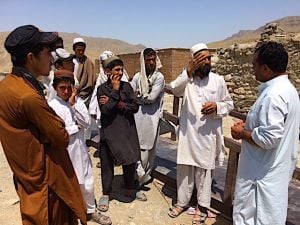
Right before Taliban moved in
He hesitated for almost one minute, and then replied vaguely:
“When the Russians were here, there was lots of shooting… It was real war… People used to die. During the jihad period, the Mujahideen were positioned over there… they were shooting from those hills, while Soviet tanks were stationed near the river. Many civilians were caught in the crossfire.”
As I got ready to ask him more questions, my interpreter began to panic:
“Let’s go! Taliban is coming.”
He’s always calm. When he gets nervous, I know it is really time to run. We ran; just stepping on the accelerator and driving at breakneck speed towards the main road.
*
Before we parted, Mr. Wahed Tooryalai grabbed my hand. I knew he wanted to say something essential. I waited for him to formulate it. Then it came, in rusty but still excellent Russian:
“Sometimes I feel so hurt, so angry. Why did Gorbachev abandon us? Why? We were doing just fine. Why did he leave us? If he hadn’t betrayed us, life in Afghanistan would be great. I wouldn’t have to be a UN driver… I used to be the deputy director of an enormous bread factory, with 300 people working there: we were building our beloved country, feeding it. I hope Putin will not leave us.”
Then he looked at me, straight into my eyes, and suddenly I got goose bumps as he spoke, and my glasses got foggy:
“Please tell Mr. Putin: do hold our hand, as I’m now holding yours. Tell him what you saw in my country; tell him that we Afghans, or at least many of us, are still straight, strong and honest people. All this will end, and we will send the Americans and Europeans packing. It will happen very soon. Then please come and stand by us, by true Afghan patriots! We are here, ready and waiting. Come back, please.”
*
A son of the super elite Afghan ‘exiles’ living in London, once ‘shouted’ at me, via Whatsapp, after I dared to criticize one of the officially-recognized gurus of the Western anti-communist left, who happened to be his religiously admired deity:
“I’m completely amazed that you’d do such a thing. Then again, you’re Russian… And Russians held a strange superiority complex about dominating the whole Asian & African continents – even when nobody invited or asked them to. Historical examples are plenty… Don’t go to a country to report about what’s actually going on when you can’t even speak the language!”
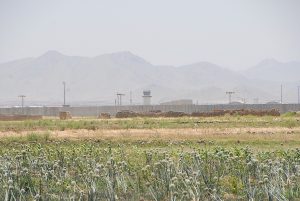
Poppy growing next to US airforce base in Bagram
This was his tough verdict on Russia and on my work; a verdict of ‘Afghan man in London’, who never even touched work in his entire life, being fully sustained by his morally corrupted family. He never travelled much, except when his father took him on one of the official diplomatic visits. He has been drinking, taking drugs and hating everything that fights, that defies the Empire. From President Duterte in the Philippines, to Maduro in Venezuela, and Assad in Syria. After he was taken out of Afghanistan at an extremely early age, he never set foot on its soil.
All of his knowledge was accumulated ‘second-hand’, but he is quick to pass endless moral judgments, and he is actually taken seriously by one of the most influential and famous ‘opposition’ figures in the West. It is because he is an Afghan, after all, and because he has a perfect English accent, and his ‘conclusions’ are ‘reasonable’, at least to some extent acceptable by the regime, and therefore trustworthy. He and others like him know perfectly well when to administer the required dose of anti-Soviet and anti-Russian sentiments, or when to choose well-tolerated anarcho-syndicalism over true revolutionary fervor.
Again in London, a lady from an Afghan diplomatic circle, who still takes pride in being somehow left-leaning (despite her recent history of serving the West), recalled with nostalgia and boasting pride:
“Once when I got sick, I travelled with my husband from Kabul to Prague, for medical treatment. It was in 80’s, and we took with us 5,000 dollars. You know, in those days in Czechoslovakia this was so much money! Our friends there never saw so much cash in their lives. We really had great time there.”
I listened politely and thought: ‘Damn, in those days, my two Czech uncles were building sugar mills, steel factories and turbines for developing countries like Syria, Egypt, Lebanon. I’m not sure whether they also worked in Afghanistan, but I wouldn’t be surprised if they did. It was their internationalist duty and they were hardly making US$500 per month. The salary of my father, a leading nuclear scientist, who was in charge of the safety of VVR power plant reactors, was at that time (and at the real exchange) well under US$200 a month. These were very honest, hard-working people, doing their duty towards humanity. And then someone came from Kabul, from the capital of one of the poorest countries in Asia, recipient of aid and internationalist help from basically all Soviet Block countries, and blows 5,000 bob in just a few days!’
In those days, socialist Czechoslovakia was helping intensively, various revolutionary and anti-colonialist movements, all over the world. Even Ernesto Che Guevara was treated there, between his campaign in Congo, and his final engagement in Bolivia.
But the lady did not finish, yet:
“Once we crossed the border and travelled to the Soviet Union by land. You cannot imagine the misery we encountered in the villages, across the border! Life was much tougher there than on our side. Of course Moscow was different: Moscow was the capital, full of lights, truly impressive…”
Was that really so? Or was this official narrative that has been injected through the treasonous elites into the psyche of both Afghans and foreigners?
I listened, politely. I like stories, no matter from which direction they are coming. I took mental notes.
Then, back in Afghanistan, I asked Mr. Shakar Karimipoint blank:
“You were travelling back and forth, between Afghanistan and the former Soviet Union. Was life in the Afghan countryside better than in Uzbekistan and Tajikistan?”
He stared at me, shocked. When my question finally fully sank into his brain, he began laughing:
“Soviet villages were so much richer, there could not be any comparison. They had all necessary facilities there, from electricity to water, schools and medical posts, even public transportation: either train or at least a bus. No one could deny this, unless they’d be totally blind or someone would pay them not to see! Of course Tashkent, capital of Uzbekistan, was totally different story: it was a huge and very important Soviet city, with theaters, museums, parks, hospitals and universities. But even the villages were, for us, shockingly wealthy. Culture at both sides of the border was, however, similar. And while the Soviets were engaged here in Afghanistan, things began developing at our side of the border, too.”
But who would listen to Mr. Shakar Karimi from Pole Charkhi Village, on the outskirts of Kabul. He hardly spoke English, and he had no idea how to be diplomatic and ‘acceptable’ to Londoners or New Yorkers. And what he was saying was not what was expected from the Afghans to say.
During my previous trip to Afghanistan, over the phone from Kabul, I suggested to my friend, another ‘elite’ Afghan exile, that the next time she should come with me, at least for a few days, in order to reconnect, to breathe the air of the city that she has been claiming she missed so desperately, for so many years. Reply was curt, but somehow predictable:
“Me, coming back like this; incognito? You don’t understand, my family is so important! When I finally go back, it will be a big, big deal!”
It is very strange, but Afghans that I know from Afghanistan are totally different from those I meet in Europe and North America. So are Afghans who are going back, regularly, to their beloved country, and who are ‘connected’, even engaged.
In Rome, I met Afghan Princess Soraya. I was invited to Italy by several left-wing MP’s representing 5 Stelli (‘5 Star Movement’) and during our lunch together, when learning about my engagement in Afghanistan, they exclaimed: “You have to meet ‘our’ Afghan Princess!”
They called her on a mobile phone. She was in her 60s, but immediately she jumped on her bicycle and pedaled to the Parliament area in order to meet me. She was shockingly unpretentious, and endlessly kind. With her, nothing was a ‘big deal’. “Come meet me in the evening in the old Jewish Ghetto,” she suggested. “There will be an opening of a very interesting art exhibition there, in one of the galleries.”
We met again, in the evening. She was very critical of the occupation of her country by the NATO forces. She had no fear, nothing to hide. She had no need to play political games.
“I’m going back to Kandahar, in couple of weeks. Please let me know when you are going back to my country. I’ll arrange things for you. We’ll show you around Kandahar.”
*
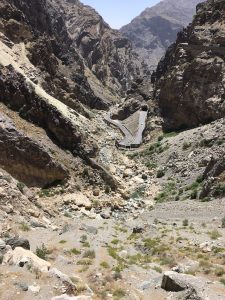
Deep ravine of Afghanistan
In the meantime, I got used to Afghanistan; to its terrain, its stunning beauty, to its bitter cold in the winter and stifling heat of the summers, to its curtness, its exaggerated politeness and even to its hardly bearable roughness, which always surfaces at least once in a while. But I never got used to all of those upper-class ‘refugees’, people who have left Afghanistan permanently; to those who later betrayed, and then betrayed again, spreading false information about their country, serving Western media/propaganda outlets or as diplomats of the puppet state abroad, making a lucrative living out of their treason and out of the misery of their own people. I don’t think that I will ever get used to them. In a way, they are even worse than NATO, or at least equally as bad, and more deadly and venomous than the Taliban.
There are many ways how one can betray his or her country. There are also countless reasons and justifications for treason. Historically, Western colonialists developed entire networks of local, “native” collaborators, all over the world. These people have been ready and willing to run down their devastated countries, on behalf of the European and later, US imperialists, in exchange for prominent positions, titles and ‘respect’. Unfortunately, Afghanistan is not an exception.
On 21 January 2010, even Kabul Press had apparently enough, and it published damning article “Afghan UN Ambassador’s $4.2 million Manhattan apartment”, referring to the super-luxury residence of then Afghan UN Ambassador, Zahir Tanin:
“Among the billions of dollars being spent propping up the Karzai government are some choice bits of New York City real estate. Number 1 is a 2,400 sq. ft. 3-bedroom corner apartment in the Trump World Tower, one of the world’s most expensive addresses. It was chosen by Zahir Tanin, Afghanistan’s Ambassador to the United Nations, who lives there with his wife.”
“According to Kabul press sources, eight other diplomats working in the Mission’s offices live about one hour away. The average rent for them is over $20,000 per month—extremely pricey even for Manhattan real estate. The previous Ambassador, Mr. Farhadi paid only $7,000 per month for all rent and expenses.”
“Other ambassadors, like Taib Jawad (Afghan Ambassador to the U.S.) are living in luxury residences, why not me?” our source quotes Tanin as saying.”
*
So many Afghans have left, many betrayed, but others are refusing to bend, remaining proud and honest.
During my previous visit to the country, I worked along the road separating the districts 3 and 5 in Kabul, photographing literally decomposing bodies of drug-users.
In June 2017 I returned, but this time I dared to film the people living under the bridges, and in deep infested hovels. Later I walked on the riverbank, trying to gain some perspective and to film from various angles.
Someone was making threatening gestures from the distance; someone else aimed a gun at me. I ducked for cover.
“Not very welcoming place, is it?” I heard loud laughter behind my back. Someone spoke perfect English.

One of the ways of filming in Afghanistan
I turned back. A well-dressed man approached me. We exchanged a few words. I explained what I was doing here and he understood immediately.
“Here is my card,” he said. Muhammad Maroof (Sarwan), Vice-President of the Duniya Construction Company,” it read. He continued:
“I came to this warehouse here to deliver my products, and I saw you filming. You’re lucky you were not hit by a bullet.”
“I want to talk,” he said, pointing his hand at the bridge. “Don’t film me, just take notes. You can quote me, even use my name.”
He explained that he used to work for the US military, as an interpreter.
Then he began speaking, clearly and coherently:
“The biggest mafias here are directly linked to both UK and US. The West lies that they want to stop trade with drugs in Afghanistan; they never will allow it to stop.”
“My brother is a writer and he has images of the U.S. army giving water pumps, studs and other basic stuff, for the growth of poppies. The biggest supporter of drugs production in Afghanistan, and the export, is the UK government. They are dealing directly with the locals, even giving them money… The UK is also the major market for the export. Helmand, Kandahar, you name it, from there, directly, transport planes are taking off and going straight towards Europe, even the US. The Westerners are people who physically put drugs into the airplane at our airports.”
“My relative was an interpreter for the British… He was killed by them, after he had been witnessing and interpreting at a meeting between the UK officials, and the local drug mafias.”
I was wondering whether he was certain he wanted to speak on the record. My interpreter was standing by, apparently impressed by what he was witnessing. Mr. Maroof did not hesitate:
“I have nothing to hide. They are destroying my country right in front of my eyes. What could be more horrifying than that? The Western occupation is ruining Afghanistan. I want the world to be aware of it, and I don’t care what could happen to me!”
*
Not all the opposition to the present regime in Kabul is fighting for true independence and progressive ideals. Some have close links with the West, or/and with the Mujahideen.
In Kabul, in June 2017, inside a makeshift camp built near the site of a devastating explosion which in May killed at least 90 people, injuring 400, I met with Ramish Noori, the spokesperson of Haji Zahir Qadir’s “Uprising for Change”. The powerful “Uprising” counts on at least a 1,000-men strong militia, one which is locked in brutal combat with ISIS (Daesh), and which has already beheaded several terrorist fighters in ‘retaliatory’ actions.
Mr. Noory clearly indicated that the goal of his group is to force the present government to resign, even if that would have to happen with the help of foreign countries:
“We were shot at in Kabul and 6 protesters were killed, 21 injured. Professional Special Forces of Ashraf Ghani shot those who were killed point blank, in the face. Instead of killing terrorists, this government is killing innocent protesters; people who came to demand security after that barbaric terrorist attack which took lives of 90 people. We actually believe that many government officials are responsible for the killings. We also think that the government is helping to coordinate attacks of the terrorists.”
Mr. Samir, one of the protesters, began shouting in anger:
“The government is killing its own people, and so we want both Ghani and Abdullah Abdullah to resign. We want an entire reset of the Afghan system. Look what is happening all around the country: killings, bomb blasts and unbridled corruption!”
But when I press them hard, I feel that behind their words there is no sound ideology, just geographically swappable ‘civil society talk’. And perhaps some power struggle as well.
I don’t know who is supporting them, who is behind them, but I feel that someone definitely is. What they say is right, but it is how they say it that worries me.
I ask Ramish Noori about the NATO occupation of Afghanistan, and suddenly there is a long pause. Then a brief answer in a slightly uncomfortable tone of voice:
“We are ready to work with any country that is supporting our position.”
“Can I stop by later today?” I ask
“Of course. Anytime. We’ll be here till the morning. We are expecting the Mujahideen to join us in the early hours.”
“Mujahideen?”
Next time I will investigate further.
*
I visited the British Cemetery in Kabul. Not out of some perverse curiosity, but because, during my last visit, I was given this tip by a Russian cultural attaché:
“See how patient, how tolerant Afghan people are… After all that has been done to them…”
I’m glad that I went. The cemetery puts the events of the last 2 centuries into clear perspective. To a clear British perspective…
Full of patriotic sentimentality, The Telegraph once described this place as: “Afghanistan: The corner of Kabul that is forever England.”
There was no repentance, no soul-searching, no questions asked, like: What was England doing here, thousands of miles away from its shores, again and again… and again?”
Above the names of fallen English soldiers, there was a sober but unrepentant dedication:
“This memorial is dedicated to all those British officers and soldiers who gave their lives in the Afghan wars of the 19th and 20th Century. Renovated by the officers and soldiers of the British Contingent of the International Security Assistance Force in Kabul. February 2002. “We Shall Remember Them””
The cemetery is well kept. There is no vandalism and no graffiti. In Afghanistan, the death of Englishmen, Spaniards and other foreigners is respected.
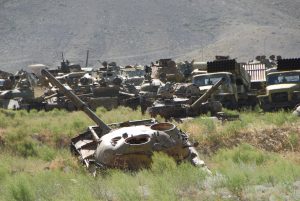
Soviet tanks cemetery
Unfortunately, the death of Afghan people is not even worth commemorating, anymore.
How many Afghans did those British troops massacre, in two long centuries? Shouldn’t there be a monument, somewhere in Kabul, to those thousands of victims of British imperialism? Perhaps there will be… one day, but not anytime soon.
*
Again I drove to Bagram, filming the monstrous walls of the US military and air force base.
Again I saw children with toy guns, running and imitating landing combat helicopters.
Again I saw misery, right next to the gates of the base; poor women covered by burkas, babies in their arms, sitting in stifling heat on speed bumps, begging.
I saw amputees, empty stares of poor local people.
All this destitution, just a few steps away from tens of billions of dollars wasted on high-tech military equipment, which has succeeded in breaking the spirit of millions of Afghan people, but never in ‘liberating the country from terrorism’, or poverty.
I drove to the village of Dashtak, in Panjshir Valley, to hear more stories about those jihadi cadres who were based here during the war with the Soviet Union.
I was stopped, detained, interrogated, on several occasions, sometimes ten times per day: On the Afghan-Pakistani border which has recently experienced fighting between two countries, in Kabul, Jalalabad, Bargam. I lost track of who was who: police, army, security forces, local security forces, or militias?
In front of Jalalabad Airport I tried to film an enormous US blimp drone, on its final approach before landing. I asked my driver to make a U-turn, my drift HD camera ready. One minute later, the military stopped the car, aiming its guns at us. I had to get out, put my hands on a wall, and surrender my mobile phones. After our identity was verified from Kabul, one of the soldiers explained:
“Yesterday, exactly the same Toyota Corolla drove by, made the same U-turn and then blew itself up, next to this wall…”
In Jalalabad, I spoke to a police officer wounded at the national Radio Television Afghanistan (RTA) station, during a terrorist attack.
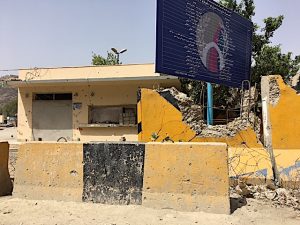
Conflict at the Afghan-Pakistani border
It all felt surreal. The entire country seems to be dissolving; yet it is refusing to fall, to collapse. It is still standing. And despite rubble, fighting and the insane cynicism of the elites, there is still hope, and even some optimism left.
I’m trying to understand.
“Afghans living abroad keep spreading false rumors that we are finished, that everybody wants to leave,” explains Arif, my driver and interpreter. “But it’s not true. More and more people want to stay home, to improve things, to rebuild our motherland. She is beautiful, isn’t she?”
We are passing through a winding road, enormous mountains on both sides, and a river with crystal-clear water just a few meters away.
“She is,” I say. “Of course she is.”
*
We stopped near a small mosque, almost clinging to a cliff. It was the month of Ramadan. Arif was diligent; he went to pray. I also left the car and went to look into a deep and stunning ravine. Another car arrived; an off-roader, most likely an armored vehicle. The driver killed the engine. Three heavily armed men descended. They left their machine guns near the entrance to the mosque, washed their feet, and then went inside to pray.
Before they entered, we all nodded at each other, politely.
Surprisingly, I did not feel threatened. I never did, in Afghanistan.
The scenery reminded me of South America, most likely of Chile – tremendous peaks, a deep valley, serpentines and powerful river down below.
I felt strong and alive in Afghanistan. Many things have gone wrong in this country, but almost everything was clear, hardly any bullshit. Mountains were mountains, rivers were rivers, misery was misery and fighters were fighters, good or bad. I liked that. I liked that very much.
“Arif,” I asked, sipping Argentinian jerba mate from my elaborate metal straw, as we were gradually approaching Kabul. It was Malta Cruz, a common, harsh mate, but a decent one.
“Do you think I can get Afghan citizenship if we kick out Yanks and Europeans, defeat Taliban and Daesh, and rebuild socialist paradise here?”
I was joking, just joking, after a long and exhausting day of work around Jalalabad.
However, Arif looked suddenly very serious. He slowed the car down.
“You like? You like Afghanistan that much?”
“Hmmm,” I nodded.
“I think, if we win, they’ll make sure to give you Afghan nationality,” he finally concluded.
We were still very far from winning. After returning me to my hotel, he categorically refused to take money for his work. I insisted, but he kept refusing.
It all felt somehow familiar and good. Back in my hotel room, exhausted, I collapsed onto the bed, fully dressed. I fell asleep immediately.
Then, late at night, there were two loud explosions right under the hill.
Afghanistan is here. You love it or hate it, or anything in between. But you cannot cheat: you are here and if you know how to see and feel, then you slowly begin to know. Or you are not here, and you cannot understand or judge it at all. No book can describe Afghanistan, and I’m wondering whether even films can. Maybe poetry can, maybe a theatre play or a novel can, but I’m not sure, yet.
All I know is that it is alive, far from being finished. Its heart is pulsating; its body is warm. If someone tells you that it is finished, don’t trust him. Come and see for yourself; just watch and listen.
*
Andre Vltchek is a philosopher, novelist, filmmaker and investigative journalist. He has covered wars and conflicts in dozens of countries. Three of his latest books are revolutionary novel “Aurora” and two bestselling works of political non-fiction: “Exposing Lies Of The Empire” and “Fighting Against Western Imperialism”. View his other books here. Andre is making films for teleSUR and Al-Mayadeen. Watch Rwanda Gambit, his groundbreaking documentary about Rwanda and DRCongo. After having lived in Latin America, Africa and Oceania, Vltchek presently resides in East Asia and the Middle East, and continues to work around the world. He can be reached through his website and his Twitter.
All images in this article are from the author.
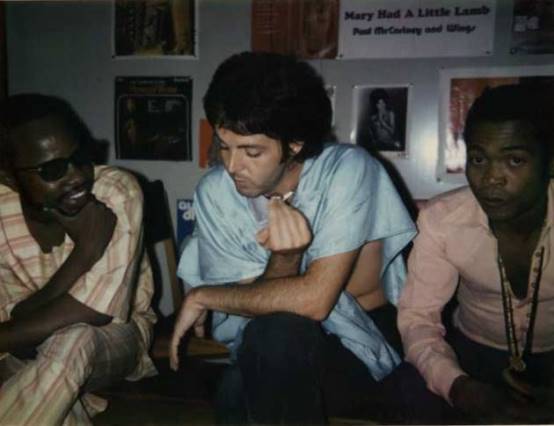











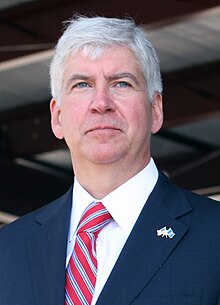










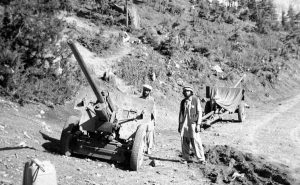

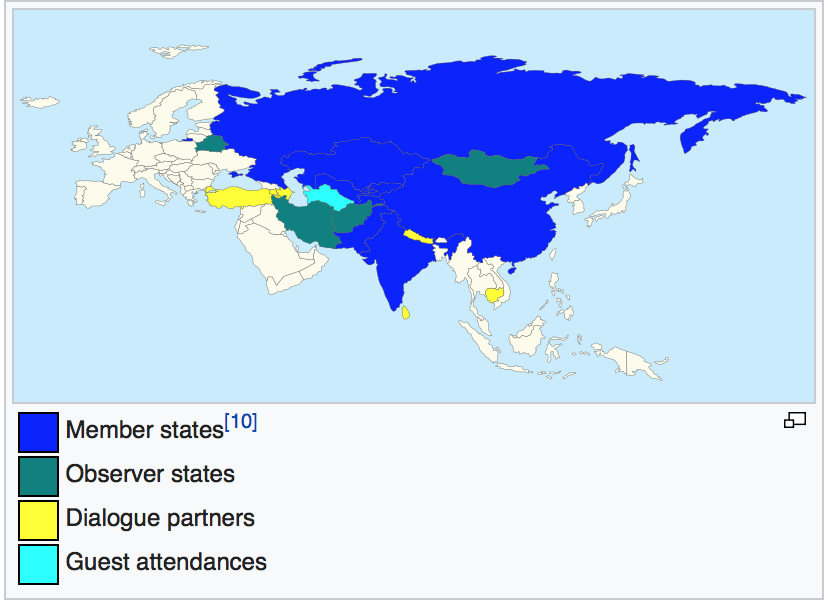 SCO Enlargement
SCO Enlargement